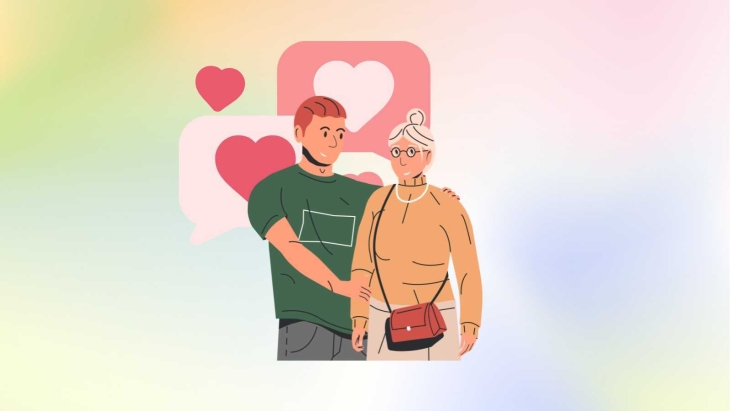Recent Posts
Most Popular
Age gaps in relationships. Why is it not socially acceptable?

Hearing about a couple with a big age difference, many still go tsk-tsk. Why do many in society frown upon big age gaps in romantic relationships?
For some, there really isn’t a formula to know the perfect age difference to make a romantic relationship work. For them, when you click, you click.
But what does research say?
Our views on age gaps in relationships are influenced by the society we live in, gender, and age.
Once concern that many people share over “age gap relationships” is the danger of grooming.
Grooming is defined as the act of building a relationship with a child or any young person, leading them to trust you so that the young person can be easily manipulated, abused or exploited. Dangers of grooming include sexual abuse, exploitation, or trafficking.
In the case of a romantic relationship, an older person might make efforts to get the trust of a younger person until they establish themselves as a romantic partner who understands them, is generous to them with attention or gifts, and even takes them to holidays.
Although people can also be involved in ‘age gap relationships’ when they are older, there are still other points that people don’t agree with.
For example, a person in their early 20s who dates another person in their 30s may still encounter disapproval from society, despite them being the appropriate age to be in a romantic relationship.
A 2022 survey in the US showed that 25% of the male participants and 14% of the female participants have experienced dating someone who is either 10 years older or younger than they were.
In the same survey, 57% of the participants said that they prefer dating someone who is older than them, and not younger.
Interestingly, society is more in favor of men dating younger women and not the other way around. There seems to be a persistent stigma that judges or criticizes females who have younger partners. Criticisms may come from their own families, friends and the community.
To offer an explanation, a study proposed that society is worried that one of the partners in the relationship is being taken advantage of due to their lack of experience, possible immaturity, or even their financial status.
Others explain that the two people who are in ‘age gap relationships’ cannot have something in common because of the large age gap, thus they must be in this relationship for other reasons than love or companionship.
What do people in ‘age gap relationships’ say?
In their defense, people in these relationships say that it is hard for people who have not been in an ‘age gap relationship’ to possibly understand.
Here are some questions to reflect on:
- Are people quick to assume that the relationship is based on something trivial or superficial?
- Are people worried about what others would say if they found out that a family member is in an age gap relationship?
- Are people uncomfortable because large age gaps in relationships are out of the norm? Do our negative perceptions come from our desire to conform to the standards set by society?
Those who have made ‘age gap relationships’ work in their favor say that their relationship was happy, fulfilling, and that age was not a big factor in their relationship.
If age really did become important, it was because of age-related characteristics that made their relationship flourish. These include:
- The emotional maturity of each partner,
- The goal of each partner for the relationship,
- The values that each person holds and brings to the relationship.
So it seems that the success of a romantic relationship is more multifaceted than we usually think. For a relationship to thrive, the two people in it must share similar life goals, values and of course, chemistry.
Connect with hundreds of mental health and healthcare job seekers across the US and find the right talent for your company!








Comments